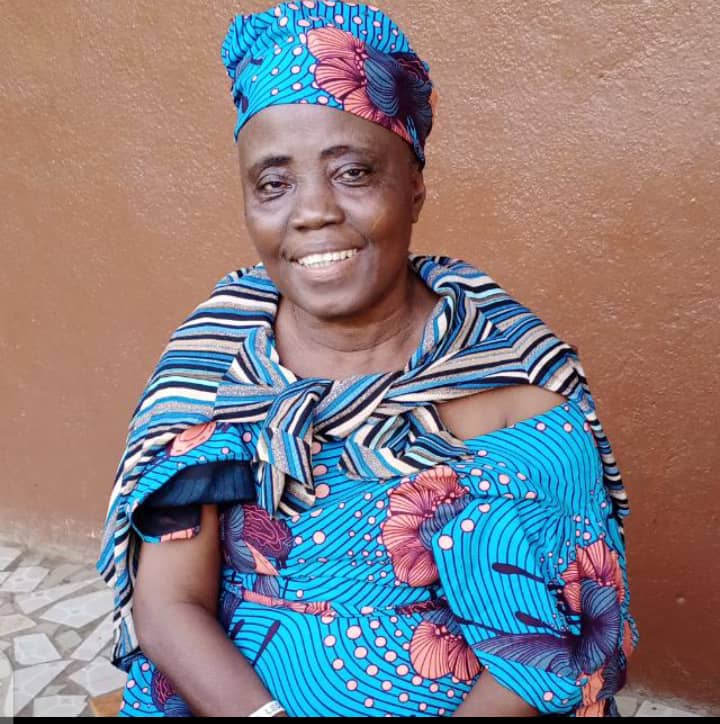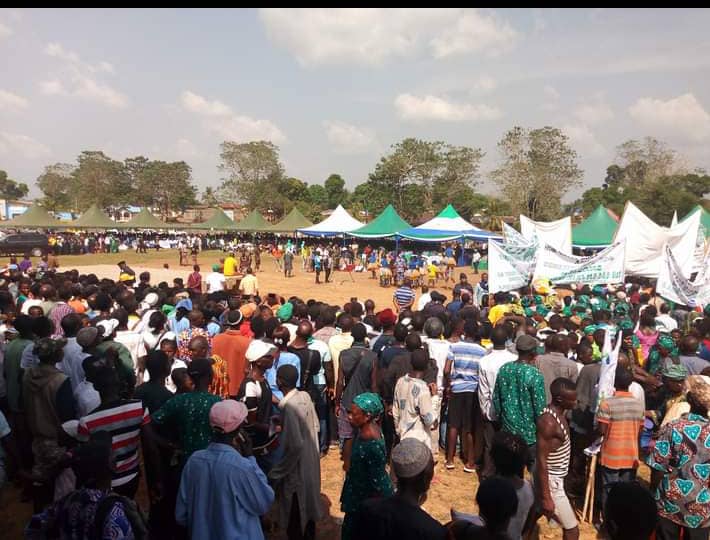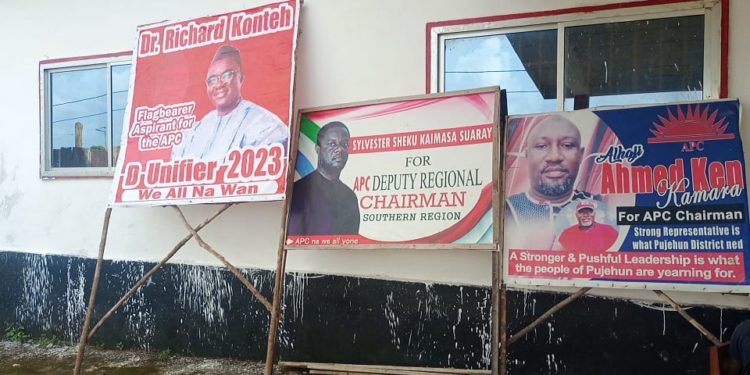Ten years after her failed attempt at holding an elected political office, Josephine Sowa is readying for active involvement in politics again. But this time, as a supporter behind the scene.
In 2012, Josephine contested and failed to get her party’s ticket for the parliamentary seat in Constituency 103, formerly Constituency 087, in the southern Pujehun District. The women’s rights campaigner and veteran educator believes that her gender played a role in her losing at the Sierra Leone People’s Party (SLPP)’s primaries.
Pujehun is considered as one of the most deprived districts in Sierra Leone and women bear the brunt of this state of deprivation. This, to a large extent, has to do with their exclusion from decision making at all levels.
The political and decision making processes across Sierra Leone are fraught with gender biases. These inequalities have been in existence even before the 1991-2002 civil war, attributed to culture and traditions. In many Sierra Leonean societies, some people still cling onto the notion that women’s role should only be limited to child bearing, domestic work and other low level tasks. This attitude permeates all levels of discussions.
Josephine, a retired Secondary School Principal, is the head of the Women of Wanjama, an organization that advocates for the rights of women. The group, established in 2013, advocates for improvement in the socioeconomic and political circumstances of women and girls in Pujehun.

Pujehun has one of the least number of women in decision making positions. To put this into perspective, for a district comprising 14 chiefdoms, it has only two female Paramount Chiefs –in Galliness and Yekemo Kpukumu Krim chiefdoms. Also, among its six parliamentary seats and 23 wards, there is not a single female MP or councillor since 2018.
This, say campaigners, raises question about the level of commitment of political parties to the recommendation of the post-war Truth and Reconciliation Commission (TRC) for women’s political inclusion. The TRC report recommends that parties allocate at least 30 percent of decision-making positions to women.
Across all political parties, the only role reserved for women, it seems, are for dancing, clapping and cooking during political events.
Josephine recalled going through all kinds of hurdles from both within her party and the community when she sought the party’s ticket. She said that a lot of barriers created by men within the party as well as limitations imposed by society, influenced the outcome.
“They think that women don’t have the money they expect you to spend to win or to fight the opponent,” she said.
“Even the community doesn’t trust female leadership at that level. They feel that only men are capable of holding such positions,” she added.
At a meeting with the leadership of Women of Wanjama four months into his presidency, Julius Maada Bio acknowledged the female political leadership gap in Pujehun and promised to address it through appointments to national offices. Campaigners observe that the fact that to date not a single woman is holding a ministerial position from the district is indicative of the government’s level of commitment to gender equality.
But Josephine, a former Principal of the Holy Rosary Secondary School in Pujehun, believes that a lot has changed in the last five years, thanks to a number of initiatives geared towards empowering and building women’s self-confidence, as well the legal environment. Perhaps the biggest motivation for the women of Pujehun, she noted, is the recently enacted Gender Equality and Women’s Empowerment Bill. The long anticipated piece of legislation passed on November 15, 2022 is a fulfilment of the TRC recommendation.
The re-introduction of the Proportional Representation system in elections has also generated excitement among women, especially in a district like Pujehun with a high gender disparity. But the idea is under serious contention, with the Supreme Court slated to make a ruling on it.
No matter what happens, Josephine hopes that women will break through at all levels of decision making after the June 2023 general elections. And for this to be realized, she has an appeal to the menfolk.
“Our brothers shouldn’t see us as threats or people who could undermine them. They should see us as sisters with whom they can work with together,” she said.
Julius George Kamara, a member of the Pujehun District civil society coalition, is also ecstatic about the prospects the new law brings. But he shares a popular concern that many similarly good laws have been enacted and failed to make a difference because of failure to popularize and fully implement them.
Kamara hopes that the Gender Ministry would undertake massive educational drive to sensitize the public on the law, especially in light of next year’s elections.
The Pujehun District Council epitomizes the gender disparity in decision making positions in the district. Ibrahim Kabiru Sesay, its Gender Officer, said however that the administration is working with political parties to change that picture. The Council, he noted, has funded capacity building initiatives for potential women candidates through collaboration with organizations like the UNDP and the NGO Send Sierra Leone.
This, Sesay said, has led to an increased number of women with interests in politics, as illustrated by the attendance to the monthly council meetings.
The Council works closely with political parties with the goal of encouraging needed changes in their approach to gender parity issues.
The incumbent SLPP and the main opposition All People’s Congress (APC) – the two major political parties in the district – have both welcomed the new gender empowering legislation.
Alhaji Ahmed Ken Kamara, Deputy Organizing Secretary of APC in Pujehun, said his party had already made it a policy for more women to be given party symbols in next year’s elections. He however said that women themselves are sometimes to blame for shying away from responsibility. This is why, he added, the party is committed to efforts of building their confidence level.
For the SLPP, since the GEWE Act is a fulfilled manifesto promise of the ‘New Direction’ administration, it is already in their plan to give more women the party symbols in the 2023 elections. Alpha Kamara, the party’s spokesman in the district, admitted that they made a “mistake” in 2018 by giving all positions to men.
“That would not be repeated,” he said.

Local authorities in Pujehun have also showed promising signs of acceptance of the need for change of attitude toward women’s leadership. Paramount Chief Samuel Saffa Gbonda of Kpanga Krim Chiefdom, who is Chairman of the Council of Paramount Chiefs in the district, said they had already committed themselves to making the call for gender equality a reality in not only Pujehun but the entire country.
“Even before the enactment of the Gender Equality and Women’s Empowerment Bill, some of us have been appointing women in our chiefdoms as chiefs,” he told ManoReporters, urging fellows Paramount Chiefs to do same.
“We will continue to support women’s involvement in decision making because we believe that it’s their right just as we the men have the same right,” said the 95-year-old traditional leader.
Elizabeth Mamakoh Jah, a member of Women of Wanjama and one of the beneficiaries of several empowerment initiatives, is looking forward to putting her skills to use.
“The capacity building trainings we’re now getting from NGOs have boosted our confidence levels. This was something that we lacked during the past elections and it was a contributing factor for most of not getting symbols,” she said.
This report was done as part of a fellowship supported by the Africa Transitional Justice Legacy Fund in collaboration with the Media Coordinating Group.






















